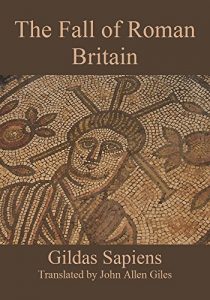The modern-day culture and language of Great Britain were shaped by the migrations of the Saxons, Angles, and Jutes from continental Europe in the fifth, sixth, and seventh centuries. These Germanic peoples gave England the language that eventually evolved into modern English, a language that is now spoken across the British Isles, and which has become one of the world’s most widely spoken tongues.
English cultural, numerical, military, and political dominance spread the English language across the British Isles, into formerly Celtic-speaking Cornwall, Wales, Scotland, and Ireland. British mercantile, imperial, and colonial power subsequently spread the English language around the world in the seventeenth, eighteenth, nineteenth, and early twentieth centuries. English served as the primary language of British colonies in North America, the Caribbean, Africa, Asia, and Oceania. In the twentieth century, the rise of the United States, a former British colony, as a military, commercial, and entertainment superpower, helped to continue the English language’s reign as an international language of communication.
Before the Anglo-Saxon migrations, England was occupied by Celtic and Latin speaking peoples. The Celtic Britons of the island had been conquered by the Roman Empire in AD 43. This led to the development of a Romano-British culture in Roman Britain, with a local Latinized British elite who lived a lifestyle similar to that of people in Rome and other parts of the empire.
By the late fourth and early fifth century AD, however, the Roman Empire faced invasions by barbarians, including the Huns, Vandals, Goths, and several other Germanic tribes. By the early fifth century, the Romans withdrew their legions from Britain in an attempt to protect the rest of their empire from the rampaging barbarians. This left Britain exposed to invasion by the Germanic Angle, Saxon, and Jute tribes from the mainland.
The period of the Anglo-Saxon migrations or invasions is very poorly documented. During this period of upheaval, the old literate Romano-British civilization was collapsing. With the loss of Roman military protection, the Britons were forced to fend for themselves. The old villas and towns were abandoned, and Romano-Celtic culture was replaced by the Anglo-Saxon culture of the newer migrants or invaders.
One of the few historic accounts of this poorly-documented and unstable time period comes from a Celtic monk named Gildas (c. 500-570, also known as St. Gildas, Gildas the Wise, or Gildas Sapiens). Little is known about Gildas’ life, by his religious sermon “De Excidio et Conquestu Britanniae” (“On the Ruin and Conquest of Britain”) describes the history of Britain, from the Roman conquest to the sixth century.
In this excerpt from that work, Gildas describes the Roman conquest of Britain, the spread of Christianity in Roman Britain, the abandonment of Britain by the Romans, and the suffering of the Britons at the hands of the Anglo-Saxon, Scottish, and Pictish invaders. In his account, Gildas harshly condemns his contemporaries, and especially his fellow Britons. The Britons, he complained, excelled in sinful behavior and in warring against one another, but were incapable of defending themselves against foreign invaders.
English cultural, numerical, military, and political dominance spread the English language across the British Isles, into formerly Celtic-speaking Cornwall, Wales, Scotland, and Ireland. British mercantile, imperial, and colonial power subsequently spread the English language around the world in the seventeenth, eighteenth, nineteenth, and early twentieth centuries. English served as the primary language of British colonies in North America, the Caribbean, Africa, Asia, and Oceania. In the twentieth century, the rise of the United States, a former British colony, as a military, commercial, and entertainment superpower, helped to continue the English language’s reign as an international language of communication.
Before the Anglo-Saxon migrations, England was occupied by Celtic and Latin speaking peoples. The Celtic Britons of the island had been conquered by the Roman Empire in AD 43. This led to the development of a Romano-British culture in Roman Britain, with a local Latinized British elite who lived a lifestyle similar to that of people in Rome and other parts of the empire.
By the late fourth and early fifth century AD, however, the Roman Empire faced invasions by barbarians, including the Huns, Vandals, Goths, and several other Germanic tribes. By the early fifth century, the Romans withdrew their legions from Britain in an attempt to protect the rest of their empire from the rampaging barbarians. This left Britain exposed to invasion by the Germanic Angle, Saxon, and Jute tribes from the mainland.
The period of the Anglo-Saxon migrations or invasions is very poorly documented. During this period of upheaval, the old literate Romano-British civilization was collapsing. With the loss of Roman military protection, the Britons were forced to fend for themselves. The old villas and towns were abandoned, and Romano-Celtic culture was replaced by the Anglo-Saxon culture of the newer migrants or invaders.
One of the few historic accounts of this poorly-documented and unstable time period comes from a Celtic monk named Gildas (c. 500-570, also known as St. Gildas, Gildas the Wise, or Gildas Sapiens). Little is known about Gildas’ life, by his religious sermon “De Excidio et Conquestu Britanniae” (“On the Ruin and Conquest of Britain”) describes the history of Britain, from the Roman conquest to the sixth century.
In this excerpt from that work, Gildas describes the Roman conquest of Britain, the spread of Christianity in Roman Britain, the abandonment of Britain by the Romans, and the suffering of the Britons at the hands of the Anglo-Saxon, Scottish, and Pictish invaders. In his account, Gildas harshly condemns his contemporaries, and especially his fellow Britons. The Britons, he complained, excelled in sinful behavior and in warring against one another, but were incapable of defending themselves against foreign invaders.












